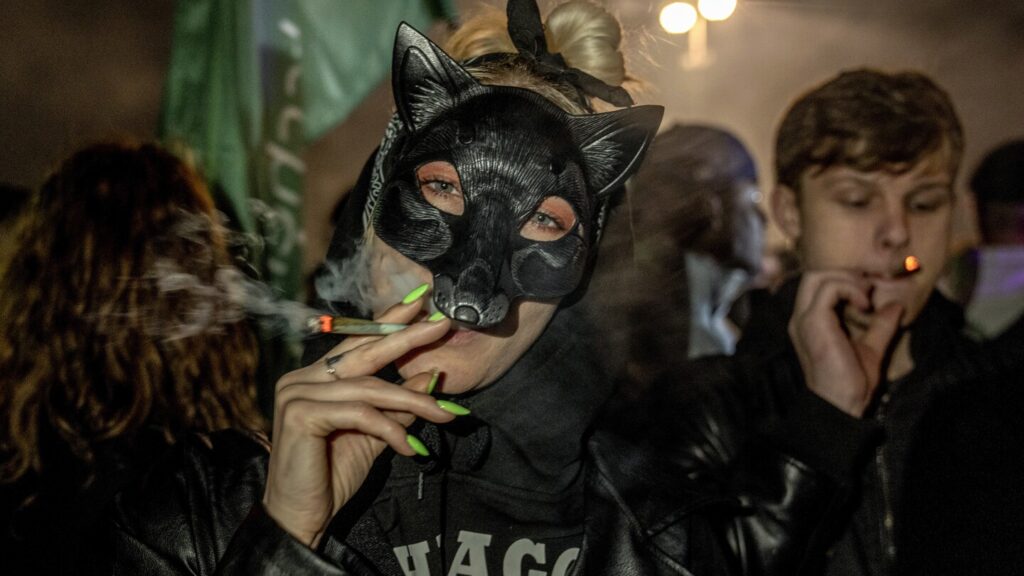FRANKFURT, Germany (AP) – Cannabis activists in Germany sparked a celebration Monday after the country eased restrictions on the possession of small amounts of cannabis.
The German Cannabis Association, which campaigned for the new law, held a “smoke-in” at Berlin's landmark Brandenburg Gate after the law came into effect at midnight. Other public consumption events were planned across the country, including in front of Cologne Cathedral, Hamburg, Regensburg and Dortmund.
Germany becomes the third country in the European Union to legalize cannabis for personal use, after Malta and Luxembourg.
The new law legalizes the recreational possession of up to 25 grams (nearly an ounce) of marijuana by adults and allows individuals to grow up to three marijuana plants on their own. That portion of the bill took effect Monday.
Starting July 1, German residents over the age of 18 will be able to join non-profit “cannabis clubs” with up to 500 members. An individual can buy up to 25 grams per day or up to 50 grams per month, but there is a limit to this figure if he is under 21 years old, he can buy up to 30 grams. You cannot belong to multiple clubs.
Associated Press correspondent Charles de Ledesma reports that Germany has legalized possession of small amounts of marijuana, but the buzz may not last long.
The club's expenses would be covered by membership fees, which would be tiered based on the amount of marijuana used by members.
The law also calls for amnesty, under which penalties for cannabis-related crimes that are no longer illegal would be reviewed and, in many cases, revoked. Local authorities fear the judicial system will be overburdened with thousands of cases.
According to the European Monitoring Center for Drugs and Drug Abuse, the general trend over the past 20 years has been for European Union member states to reduce penalties for cannabis in a variety of ways.
These could include making possession a civil offense, diverting offenders to treatment instead of the criminal justice system, or lessening the harshness of enforcement. Cannabis remains illegal in the Netherlands, but prosecutors allow the sale of small quantities in so-called coffee shops. Many countries in Europe allow medical cannabis under different rules.
But the law may not be the final word. The bill was pushed through by Chancellor Olaf Scholz's current coalition government of the Social Democrats, the Greens and the pro-business Free Democrats over opposition from some federal states and the centre-right Christian Democratic Party. . Friedrich Merz, leader of the Christian Democratic Party, has vowed to withdraw the bill if his party wins national elections scheduled for autumn 2025.
Major garden centers surveyed by dpa news agency said they would not add cannabis plants to their garden products, and the German Medical Association said the law would have “serious consequences for the development and life prospects of our young people”. This law was opposed as a possibility. Our country. “


